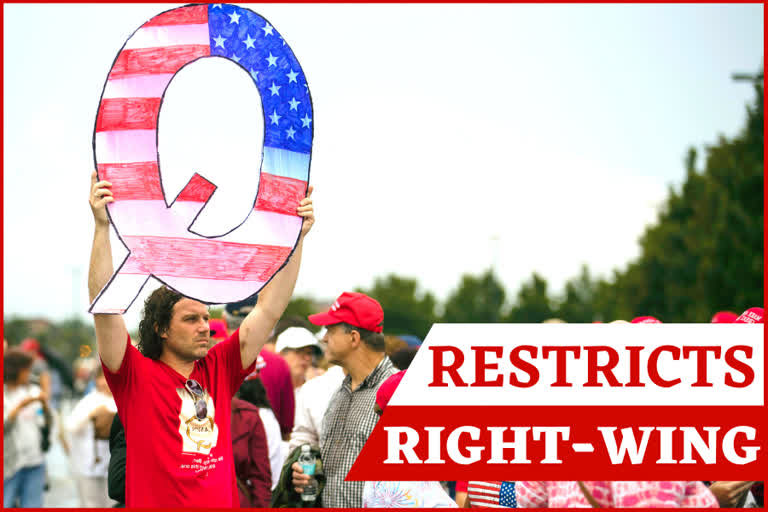Oakland:Facebook said it will restrict the right-wing conspiracy movement QAnon and will no longer recommend that users join groups supporting it, although the company isn't banning it outright.
Facebook said Wednesday it is banning groups and accounts associated with QAnon as well as a variety of U.S.-based militia and anarchist groups that support violence. But the company will continue to allow people to post material that supports these groups, so long as they don't violate policies against hate speech, abuse and other provocations.
QAnon groups have flourished on Facebook in recent months and experts say social media has aided the rise of the fringe movement. Twitter announced a similar crackdown recently and TikTok has banned QAnon altogether from its searches, along with related terms such as “WWG1WGA," shorthand for the group's motto “Where We Go One, We Go All.”
Google said it has removed tens of thousands of QAnon-related videos from its YouTube service and banned hundreds of channels for violating its policies, but it also does not ban QAnon outright.
Read |Twitter, Facebook slam Trump's executive order on social media
The QAnon conspiracy theory is centered on the baseless belief that President Donald Trump is waging a secret campaign against enemies in the deep state and a child sex trafficking ring run by satanic pedophiles and cannibals. For more than two years, followers have pored over tangled clues purportedly posted online by a high-ranking government official known only as “Q.” Some extreme supporters of Trump adhere to the theory, often likened to a cult.
The conspiracy theory emerged in a dark corner of the internet but has recently crept into mainstream politics. Trump has retweeted QAnon-promoting accounts and its followers flock to his rallies wearing clothes and hats with QAnon symbols and slogans.
Read |Trump posts will be taken down if they violate norms: Facebook
Last week, Marjorie Tyler Greene, a House candidate who openly supports QAnon, won her Republican primary in Georgia. She's part of a growing list of candidates who have expressed support for QAnon. Lauren Boebert, another candidate who has expressed support for QAnon, recently upset a five-term congressman in a Republican primary in Colorado.
Facebook said it will only remove groups and accounts outright if they discuss potential violence, including in veiled language. It said it is not banning QAnon outright because the group does not meet criteria necessary for the platform to designate it a “dangerous organization.” But it is expanding this policy to address the movement because it has “demonstrated significant risks to public safety.”
But experts say this doesn't go far enough.
“Facebook’s actions today may ultimately come to be viewed as ‘too little, too late,' said Ethan Porter, a professor of media and public affairs at George Washington University. “It will probably make a dent. But will it solve the problem? Not at all. At this point, the most fervent QAnon believers are not only entrenched on the platform, but likely heading to the halls of Congress. Yet this may give them trouble with recruits."
